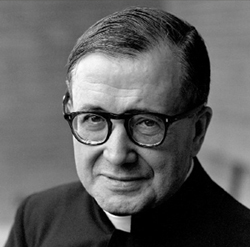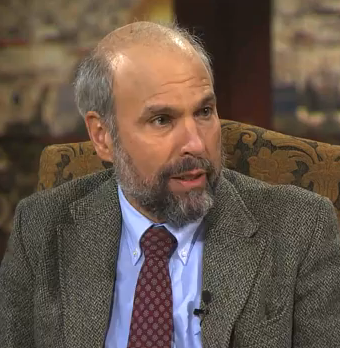Restless
 I’ve been listening to this song all afternoon and, since this blog has already accumulated a patron Saint, I think it’s only fair that it should also have a theme song…
I’ve been listening to this song all afternoon and, since this blog has already accumulated a patron Saint, I think it’s only fair that it should also have a theme song…
“Restless” by Audrey Asaad
"We are travellers…not yet in our native land" – St. Augustine
 I’ve been listening to this song all afternoon and, since this blog has already accumulated a patron Saint, I think it’s only fair that it should also have a theme song…
I’ve been listening to this song all afternoon and, since this blog has already accumulated a patron Saint, I think it’s only fair that it should also have a theme song…
“Restless” by Audrey Asaad

“Live and work for God, with a spirit of love and service, with a priestly soul, even though you may not be a priest. Then all your actions will take on a genuine supernatural meaning which will keep your whole life united to the source of all graces” – St. Josemaría Escrivá
 While we’re on the subject of great power and responsibility, I just wanted to share with you a recent post I saw over at “Stuff Christians Like” entitled People who pray with British accents:
While we’re on the subject of great power and responsibility, I just wanted to share with you a recent post I saw over at “Stuff Christians Like” entitled People who pray with British accents:
“When I hear someone pray with a British accent, they sound like it’s coming out of their mouth in cursive…”
– John Acuff
Having an English accent in America is something of a blessing and a curse.
It’s constantly assumed that I’m from Australia. I’m regularly asked to repeat myself while on the phone because people can’t understand what I’ve said. I’m often asked if I know so-and-so who lives in London. I regularly have to explain the difference between England, the UK and Great Britain.
On the plus side, people assume that I’m more intelligent than I actually am…
The Readings this week focus around the relationship between power and responsibility. It answers the question: what does the Lord demand of a leader?
In the First Reading, the Prophet Malachi speaks out against the Levite priests for abusing their position of power. They did not honour their privileged relationship with God. King David sings in the Psalm about the attitude which they should have had: humility rather than pride.
In the Second Reading we gain insight into St. Paul’s relationship with the Church in Thessalonica. Although Paul had founded that church and although he had legitimate authority over them as an Apostle he speaks tenderly to them and lovingly, as one might expect a good father.
Not so with the Pharisees! In the Gospel Jesus condemns them for not practising what they preach, for placing heavy burdens on the Children of Israel and for constantly seeking public adulation.
Jesus then turns the concept of leadership on its head. If you want to be great in the Kingdom, he says, you must humble yourself and serve. As a great man once said, with great power comes great responsibility…

 Today I wanted to honour another one of my favourite people. The person I would like to enthuse about today is Dr. Peter Kreeft, professor of philosophy at Boston College and, quite frankly, one of the most intellectually engaging speakers I’ve ever heard.
Today I wanted to honour another one of my favourite people. The person I would like to enthuse about today is Dr. Peter Kreeft, professor of philosophy at Boston College and, quite frankly, one of the most intellectually engaging speakers I’ve ever heard.
Professor Kreeft first came to my attention when one of my friends mentioned in an email that she really liked his books. Up until that point, I had never heard of him. Following the recommendation, I went to his website and listened to some of his talks which are available online.
After listening to the first talk, I concluded what I almost always conclude after listening to one of his lectures: “I am so dumb! My mind is so dull!”. Like Grandpa Sheen, Kreeft has an amazing ability to forge links between ideas which I would never have considered to be even remotely connected.
 How Hebrew is your Faith? I think that within Christianity there is always this Marcionite tendency to try and sever Christianity from its Jewish roots.
How Hebrew is your Faith? I think that within Christianity there is always this Marcionite tendency to try and sever Christianity from its Jewish roots.
When I was back living in London, I had the privilege of hearing the testimony of a man called Roy Schoeman. Roy is the son of Jewish parents who escaped the Nazi persecutions in Germany before World War II. He studied for a while under the noted Rabbi Arthur Hertzberg before eventually falling into atheism. Some time later he had a dramatic conversion and, a little while later, found his way into the Catholic Church.
When I first heard Roy speak, it renewed my appreciation for the Jewish roots of Christianity. I have since listened to a number of his talks and I’ve found that his Jewish perspective often gives me a new awareness when looking at the Sacred Scriptures. I have found this particularly true for St. Paul’s epistles, especially the letter to the Romans.
I would thoroughly recommend everyone to spend some time in the Audio and Video section of his website, listening to his testimony and to some of his talks, I think you’ll find them really enlightening.
“After all, if you [Gentiles] were cut out of an olive tree that is wild by nature…[and] grafted into a cultivated olive tree, how much more readily will…[the Jews]….the natural branches, be grafted into their own olive tree!” – Romans 11:24
 Once I had accepted employment at Cynergy Systems in the US, I visited San Diego for a week to try and get a sense of what it would be like to live in America. While I was there I found out that the Dead Sea Scrolls, those ancient Jewish manuscripts found in the caves at Qumran, were currently on display in the Natural History Museum. It was quite a special moment to be standing in front of the oldest manuscript of the Prophet Isaiah and this encounter began to foster within me a desire to learn the original languages of the Scriptures.
Once I had accepted employment at Cynergy Systems in the US, I visited San Diego for a week to try and get a sense of what it would be like to live in America. While I was there I found out that the Dead Sea Scrolls, those ancient Jewish manuscripts found in the caves at Qumran, were currently on display in the Natural History Museum. It was quite a special moment to be standing in front of the oldest manuscript of the Prophet Isaiah and this encounter began to foster within me a desire to learn the original languages of the Scriptures.
Last month I read that, thanks to Google, there are now available five high-resolution scans of the scrolls:
If you would like to know more about the Dead Sea Scrolls and their contribution to our understanding of the Bible, I would encourage you to listen to the talk on this subject given by Sebastian Carnazzo at the Institute of Catholic Culture.